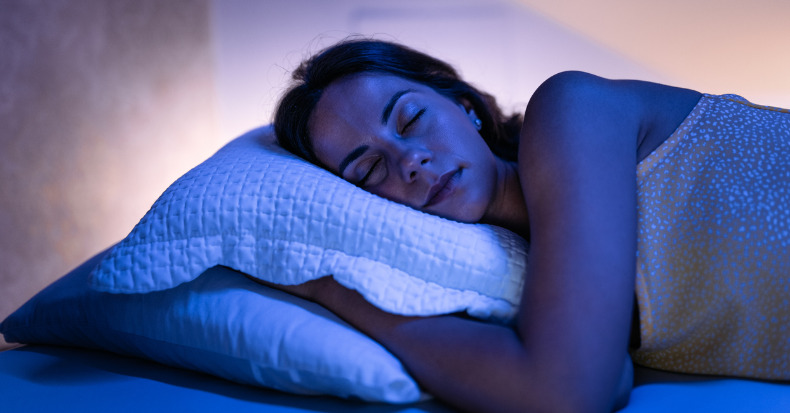Sleep is a basic and essential need that allows the body to rejuvenate, which provides both physical and mental health benefits. Lack of quality sleep can increase the risk for chronic health conditions and significantly reduce an individual’s quality of life. Sleep troubles tend to become more common with age, which can worsen existing health problems. A 2020 study found that older adults with moderate-to-severe sleep disturbances will likely accumulate chronic neuropsychiatric and musculoskeletal conditions at a faster rate than seniors with good sleep hygiene. While there are pharmaceutical treatments available, patients may be hesitant to use them long term due to a variety of factors and instead seek out non-pharmacological interventions to improve their sleep.
For many patients, the first step may include an evaluation of their bedroom and nighttime habits. Tips offered by leading health organizations include the following: go to bed and get up at the same time every day, even on the weekend; avoid nicotine, caffeine, and alcohol before bedtime; have a relaxing routine before bed, such as taking a bath, reading, or meditating; maintain a comfortable temperature in your bedroom; keep your bedroom dark and quiet; avoid napping close to bedtime; do not watch TV or use any other electronic devices just before bed; and if you can’t fall asleep, go to another room and read a book or listen to music until you feel tired and then return to bed.
Lifestyle choices can also impact sleep quality such as poor diet and physical inactivity. To give yourself the best chance for a good night’s sleep, spend some time in the sun during the day; eat lean protein sources and plenty of servings of fruit and vegetables; avoid processed food products and sugary drinks, especially in the evening; be sure to engage in at least 150 minutes of moderate-to-vigorous exercise each week, but avoid strenuous exercise before bed; break up prolonged sessions of sedentary behavior with a break every 30 minutes or exchange sedentary time with other activities that engage the body or brain; and develop strategies to manage work and life stress.
If improved bedtime habits and a healthier lifestyle fail to improve sleep quality and duration, a February 2023 systematic review that included 15 studies found evidence that aromatherapy, auricular acupuncture, cognitive behavioral therapy (CBT), and stimulation therapy may help. In some cases, these services may be offered by your doctor of chiropractic or they can make a referral to an allied healthcare provider.
Lastly, know that sleep and chronic pain often have a bi-directional relationship. That is, the presence of one elevates the risk for the other. This is especially the case with low back pain but is likely true for other musculoskeletal disorders, though research may be lacking. So, if you are experiencing poor sleep and also have musculoskeletal pain, schedule an appointment with your chiropractor to address it because you may find that as your pain is better managed, it might be easier to fall asleep and stay asleep each night.



